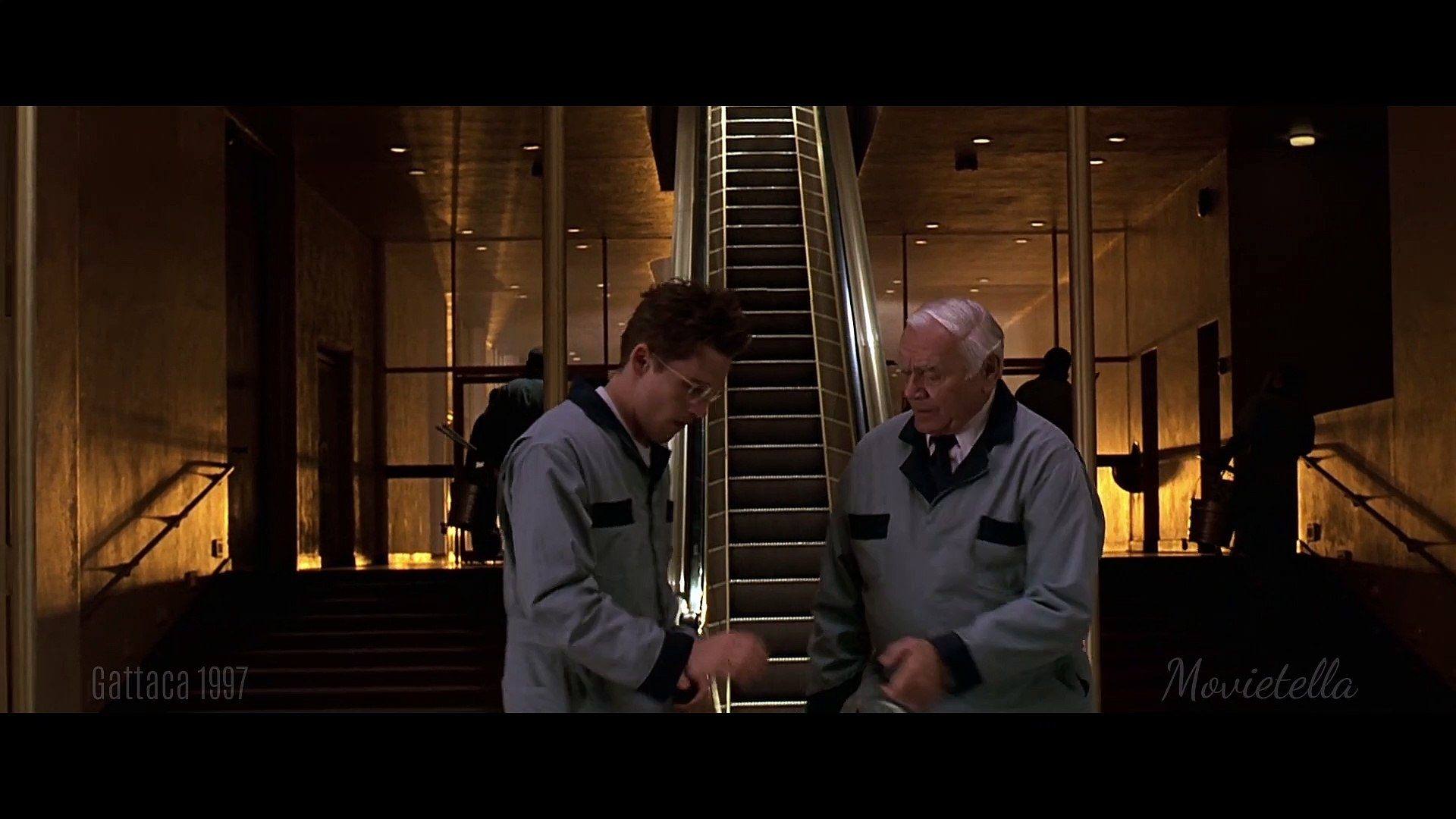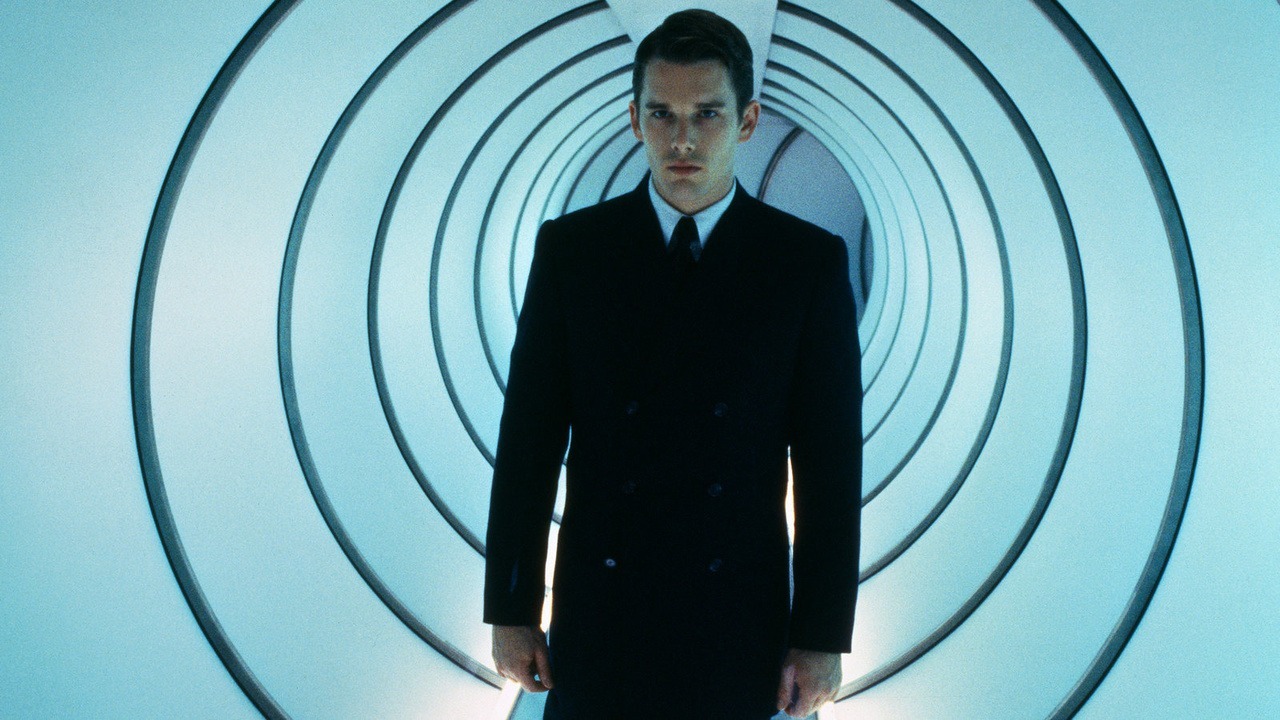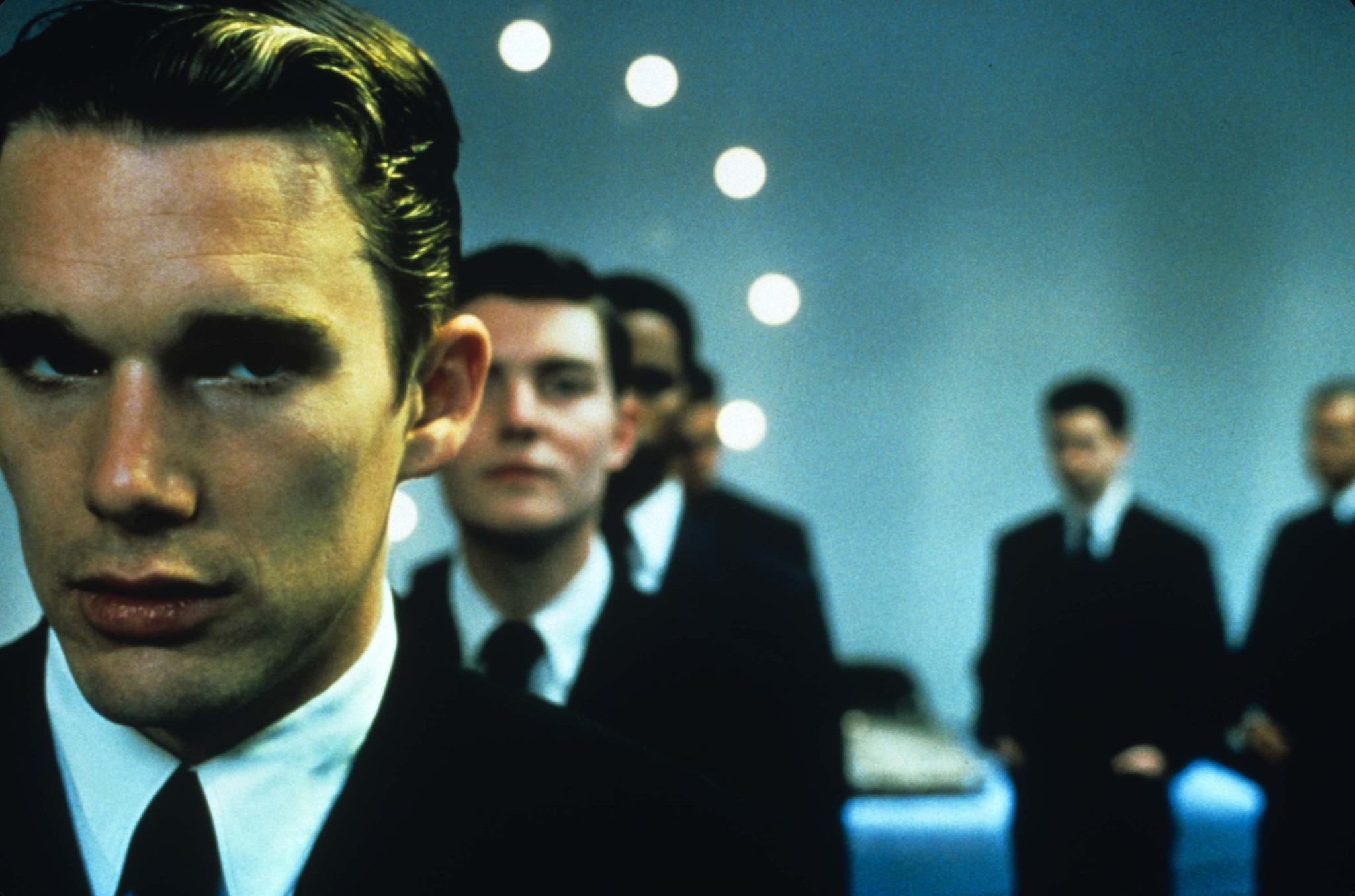Gattaca (1997)

Gattaca (1997) is a dark science fiction film written and directed by Andrew Niccol, marking his directorial debut. The film explores themes of genetic engineering, societal control, and personal identity in a dystopian future. Set in a world where genetic perfection is highly valued, Gattaca portrays a society where people are classified and judged based on their genetic makeup. The movie stars Ethan Hawke and Uma Thurman, with notable performances from Jude Law, Loren Dean, Ernest Borgnine, Gore Vidal, and Alan Arkin. Through its thought-provoking narrative, Gattaca raises important questions about the ethics of genetic manipulation and the pursuit of human potential.
The plot of Gattaca centers around Vincent Freeman (played by Ethan Hawke), a man born naturally rather than through genetic engineering, which in this world makes him a “degenerate” in the eyes of society. Despite his aspirations to travel to space, Vincent is subjected to societal discrimination because of his “imperfect” genes. He faces the harsh reality that those born through genetic engineering, such as his brother Anton (played by Loren Dean), are given superior opportunities. Vincent’s desire to break free from this genetic determinism drives the plot as he assumes the identity of a genetically superior individual, Jerome Morrow (played by Jude Law), in order to achieve his dream of space exploration.
A central theme in Gattaca is the tension between genetic determinism and personal agency. In the world of Gattaca, genetics dictate every aspect of a person’s life—from career choices to relationships. The film critiques the concept of genetic engineering as a way to eliminate imperfections, raising questions about the value of individuality and human choice. Vincent’s struggle to overcome the limitations imposed by his genetics symbolizes the human desire for self-determination and the pursuit of a dream despite societal constraints. His determination challenges the idea that genetics should define one’s destiny.
The movie also explores the idea of identity, particularly through the character of Jerome Morrow. Jerome, portrayed by Jude Law, is a genetically engineered man who, despite being physically perfect, suffers from emotional and psychological trauma after a tragic accident that left him paralyzed. His life, built on the expectation of genetic perfection, is shattered by a single flaw. Jerome’s story contrasts with Vincent’s, as it demonstrates that genetic perfection does not guarantee happiness or success. This interplay between the two characters emphasizes the movie’s message that human potential is not solely determined by one’s genetic code but by individual will and resilience.

Gattaca is visually striking, with its minimalist and sterile aesthetic contributing to the film’s dystopian atmosphere. The cinematography by Slawomir Idziak uses muted colors and symmetrical compositions to reflect the clinical, controlled nature of the society in which the characters live. The futuristic setting is characterized by sleek, cold architecture and sterile environments, enhancing the sense of isolation and control that pervades the film. This stark visual style reinforces the oppressive societal structure that defines the characters’ lives, adding depth to the film’s exploration of its themes.

The film’s exploration of ethics is also a key element of Gattaca. As the story unfolds, the film delves into the moral implications of genetic manipulation and the power of technology to define human worth. In a society where genetics are used as a tool for discrimination, the question arises whether it is ethical to judge someone’s potential based on their genetic makeup. Gattaca challenges the notion that perfection can be engineered, arguing instead that the human spirit, perseverance, and personal choices are what truly define a person’s value and abilities.

In conclusion, Gattaca is a powerful science fiction film that examines the dangers of a society driven by genetic engineering and the limitations of genetic determinism. Through its compelling characters, thought-provoking themes, and stark visual style, the film invites viewers to reflect on the importance of individual agency and the ethical implications of technological advancements. Gattaca ultimately delivers a message of hope, illustrating that human potential is not determined solely by genetics, but by the choices we make and the determination to overcome obstacles. As such, it remains a relevant and important film in discussions about the future of biotechnology and human rights.











